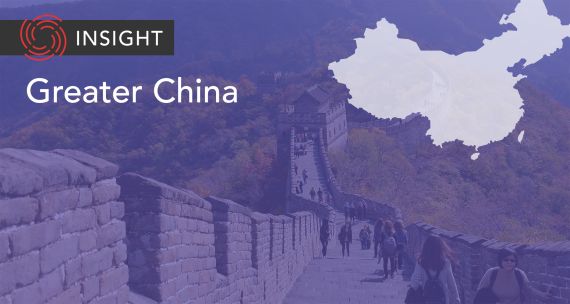The Takeaway
Hong Kong Chief Executive John Lee Ka-chiu unveiled a set of wide-ranging initiatives in his annual policy address on October 25. While recognizing Lee’s proposals as ambitious, some policy experts are concerned that the plan lacks a clear focus and argue that it could sap the government’s already lean coffers. Moreover, some of Lee’s new signature policies — including easing property taxes and increasing the city's low fertility rate — could fall short if complementary measures to address the root causes of these issues are not implemented.
In Brief
-
On October 25, Hong Kong's leader delivered his second annual policy address. Entitled "A Vibrant Economy for a Caring Community," the 171-point blueprint covers key policy areas and aims to invigorate the city's sluggish economy, improve residents’ quality of life, and strengthen national security.
-
Key policies to stimulate the city’s real estate sector and its wider economy include the reduction of the buyer’s stamp duty (a tax levied on the buyer of any residential property), from 15 per cent to 7.5 per cent for non-permanent residents and second-home buyers — easing the city government’s property cooling measures for the first time in a decade — and a C$1.76-billion (10 billion Hong Kong dollars) 'New Industrialization Acceleration Scheme.' The scheme will be used to help build the infrastructure for several emerging industries, including life sciences, artificial intelligence, advanced manufacturing, and new energy.
-
To elevate the city’s standard of living, Lee pledged to increase the supply of public housing and to “set minimum standards of living conditions” for the city’s notoriously cramped subdivided units (SDUs).
-
In response to Hong Kong's extremely low fertility rate, Lee rolled out a cash bonus of C$3,500 (20,000 Hong Kong dollars) for each baby born to permanent residents, along with expedited access to public housing for families with newborns.
-
Lee also pledged to introduce the long-delayed Article 23 of the city’s Basic Law in 2024. Article 23, seen by some as a “homegrown security law,” is meant to complement the Beijing-imposed National Security Law that came into force in June 2020. Additionally, a committee will be formed to incorporate patriotic education into the school curriculum to “ensure its [patriotism] continuity from generation to generation.”
Implications
Lee’s proposals were acknowledged for going from ‘A to Z’: the chief executive touched on nearly all of Hong Kong’s most pressing policy issues, ranging from the city’s severely unaffordable housing to capital flight concerns. However, some of Lee's policies may be too little, too late. While he did advance several investment-boosting strategies — such as offering foreign expats multi-entry visas to enter the Chinese mainland and encouraging Chinese and foreign companies to set up headquarters and divisions in Hong Kong — Hong Kong’s market may have simply lost its appeal for some. Global investors remain cautious about the broader economic outlook for the Chinese mainland and its increasingly uncertain regulatory landscape for private and foreign companies, making Hong Kong’s role as the gateway to the world’s second-largest economy less alluring.
Hong Kong’s desire to double down on ASEAN, Middle Eastern, and Regional Comprehensive Economic Partnership markets (along the path of Belt and Road Initiative projects) and away from more established markets in the U.S., Canada, and the European Union might also discourage some prospective investors. And while Hong Kong’s stock exchange saw more initial public offerings in the first half of 2023 compared to the same period in 2022, the quality of listings still lags behind those in some of the other major global stock markets.
Although Lee’s axing of a 30-per-cent increase to a levy on stock trades could offer some short-term relief, analysts suspect it will not substantially increase trading activity in the medium-to-long term, as structural issues linger, and national security continues to take centre stage in Lee’s policy considerations.
On welfare policy, some lawmakers pointed out that Lee’s measures lack clearly defined timetables and prioritization. For some planned initiatives, it is unclear how different government agencies would work together on joint projects. There is also confusion regarding which departments would be responsible for policy implementation. What’s more, Lee’s failure to tackle the root causes of issues may render some policies ineffective or even counterproductive. For example, the one-time baby bonus is unlikely to boost Hong Kong’s historically low fertility rate of 0.8 without broader family supports such as expanded paid parental leave, more affordable childcare options, and flexible work arrangements.
Meanwhile, policies targeting SDUs — which house some 220,000 residents — are a good starting point, but unless paired with sufficient replacement housing and rent controls, undesirable living conditions and out-of-reach property prices will remain major obstacles to Hongkongers’ child-rearing and social activities.
Lee’s thinly spread batch of initiatives is further complicated by an anticipated government deficit of C$17.55 billion (100 billion Hong Kong dollars) in the 2023-24 financial year. According to Financial Secretary Paul Chan, the extensive list of initiatives would cost “several billions of dollars” annually, straining an already slim tax base. Simultaneously implementing planned mega projects like the Northern Metropolis and Kau Yi Chau Artificial Islands could potentially grow this deficit.
What's Next
-
Housing market likely to remain sluggish
With home prices down 16 per cent over the last two years due to rising interest rates, property tax relaxations may nudge home purchases up in the short term. Even with falling prices, however, properties in the city remain unaffordable to many residents. The property tax cuts could attract more talent from mainland China (and overseas) to relocate to Hong Kong, which could modestly increase transactions and liquidity in the city's sluggish real estate market. But with transactions at historic lows, analysts caution that price declines may continue.
2. Substantial welfare reforms needed amid public dissatisfaction
Respondents to a poll conducted immediately after Lee’s policy address by the Hong Kong Public Opinion Research Institute scored the address an average of 44.4 out of 100, nearly seven points lower than Lee's inaugural address in 2022. Two-thirds of the respondents in media outlet HK01’s post-policy address survey expressed dissatisfaction with Lee’s social welfare measures.
• Produced by CAST's Greater China team: Maya Liu (Program Manager); Karen Hui (Analyst); Chloe Yeung (Analyst). Edited by: Ted Fraser. Design by: Chloe Fenemore.




